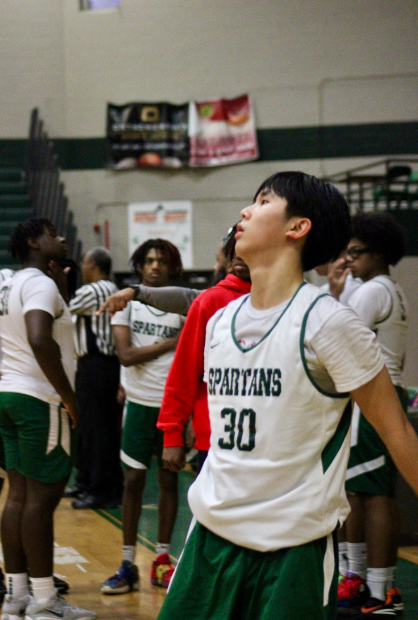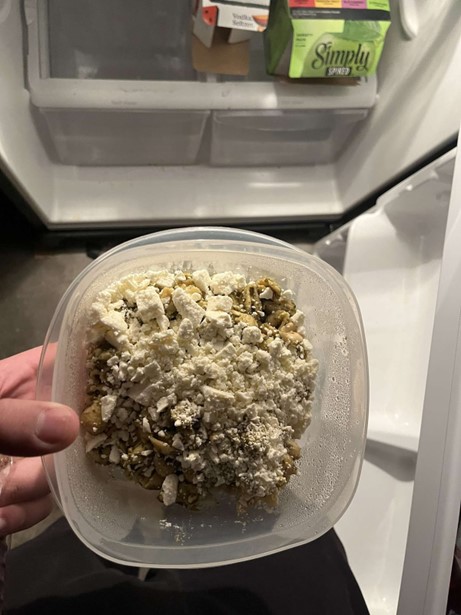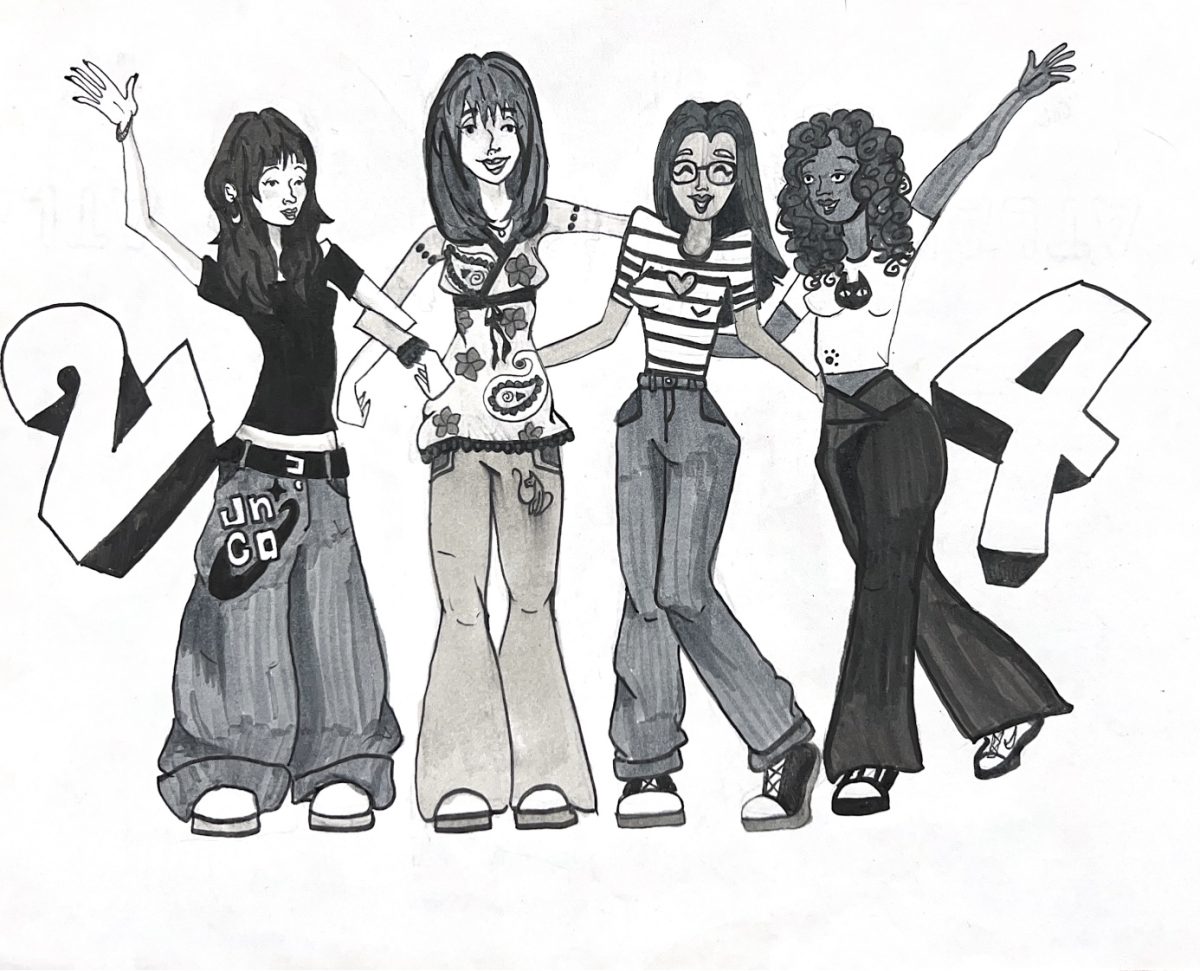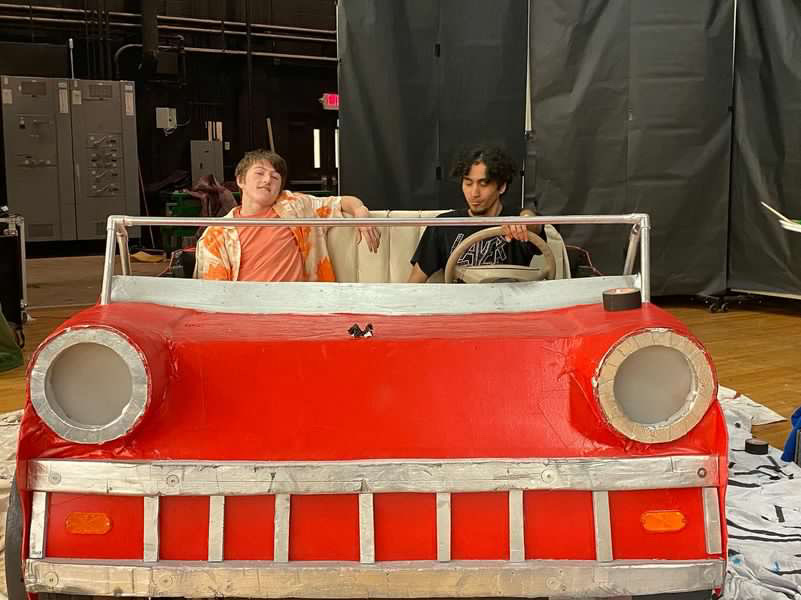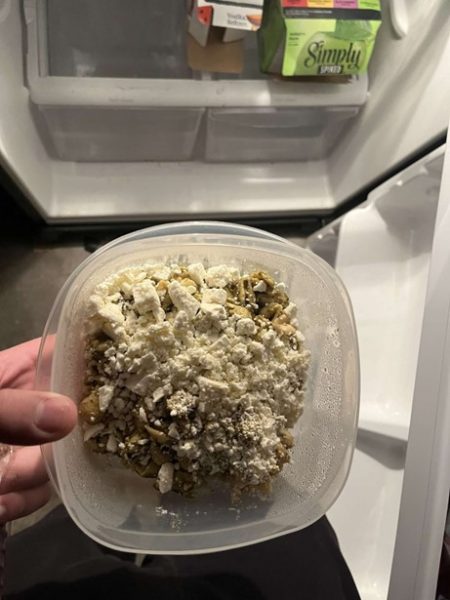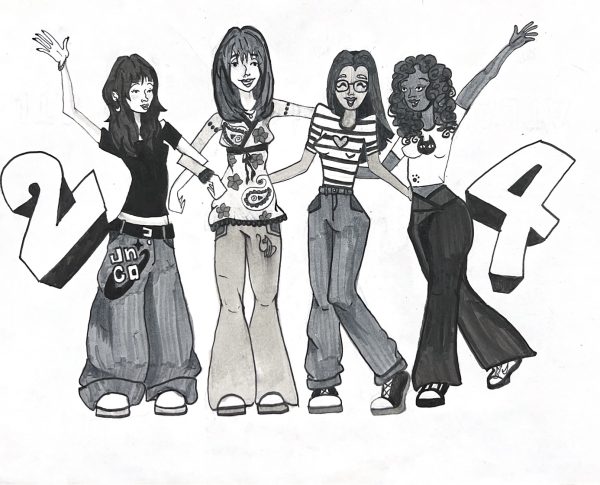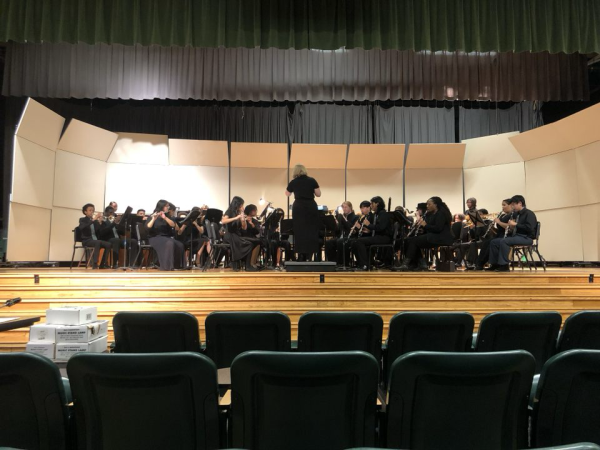Behind the curtains of ‘Grease’ the musical
NADIA SOMMERVILLE//USED WITH PERMISSION
The theater’s production of “Grease” runs from April 28-30. Students spent two months preparing for this performance.
In the far depths of the auditorium, tucked behind the backdrops and walls, lies a crew of students who go unnoticed. Throughout the play, the audience embarks on a musical journey, with props and scenery letting their imaginations run wild. Yet none of this would be possible without the people hidden behind the stage — the stage crew. They manage the lights, cue the actors and bring the stage to life.
“I am the stage manager, so I kind of run everything,” Nadia Sommerville (12) said. “I have a binder that is like two inches thick [and] has the entire script in it, including character motivations. [Also, it] has cues in it for lights and music.”
For the production of “Grease”, the stage crew consisted of 13 students. Although the public may not see the crew, they are an essential part to the play. The crew spends weeks building props and scenery to give actors the correct environment to embody their characters. During production, they move sets on and off stage and help actors adjust to any last minute changes. The crew also acts instinctively throughout the play to make sure it runs smoothly.
“[The stage crew] is really impactful; they help us move props [and] paint [the sets],” Ehrett (12) said. “[Without them objects] would not get moved on stage, [and] we would have to have someone [else] [close] the curtain.”
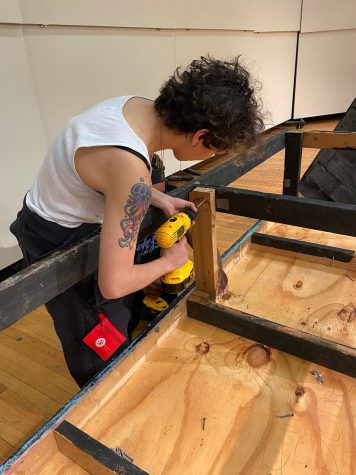
(DALILA RODRIGUEZ//USED WITH PERMISSION)
The production of “Grease” took two months of preparation before it was ready to hit the stage. Students practiced their lines, memorized lyrics and learned dance choreography. While practicing, the crew assisted them with their needs and ensured they stayed motivated.
“It’s stressful,” Sommerville said. “I kind of have to be a jerk in order to get people to do what they’re supposed [to do] so that rehearsal can run smoothly. [I make sure] actors know what their cue lines are for the next thing, and if a certain character isn’t there, I read for them.”
“Grease” would not be “Grease” without the efforts of the stage crew. Shielded behind props and curtains, they stand tall, working to keep the play together, yet most audience members do not understand their duties and have the common misconception that their job is easy.
“A lot of people think that [being on the stage crew is] really easy, and it’s not,” Elio Martin (12) said. “It’s a lot of stepping out of your comfort zone [and] having to keep track of the nit-pickiest things. People think it’s a walk in the park, [and] it’s not as easy as [they] make it out to be.”
To perform on stage is to tell a story through the eyes of a character. A group of strangers was able to come together to perform “Grease,” and by the conclusion, they had become a family. For the stage crew, most members obtained this family aspect by working on productions. Through helping with performances, they brought a story to life, but most importantly, they found their sense of belonging.
“I wanted to be involved backstage specifically because I have stage fright,” Martin said. “[However,] I still loved the theater [and] kind of found out that working backstage was how I could [still] get that [sense of] community.”
Your donation will support the student journalists of White Station High School. Your contribution will allow us to purchase equipment and cover our annual website hosting costs.













